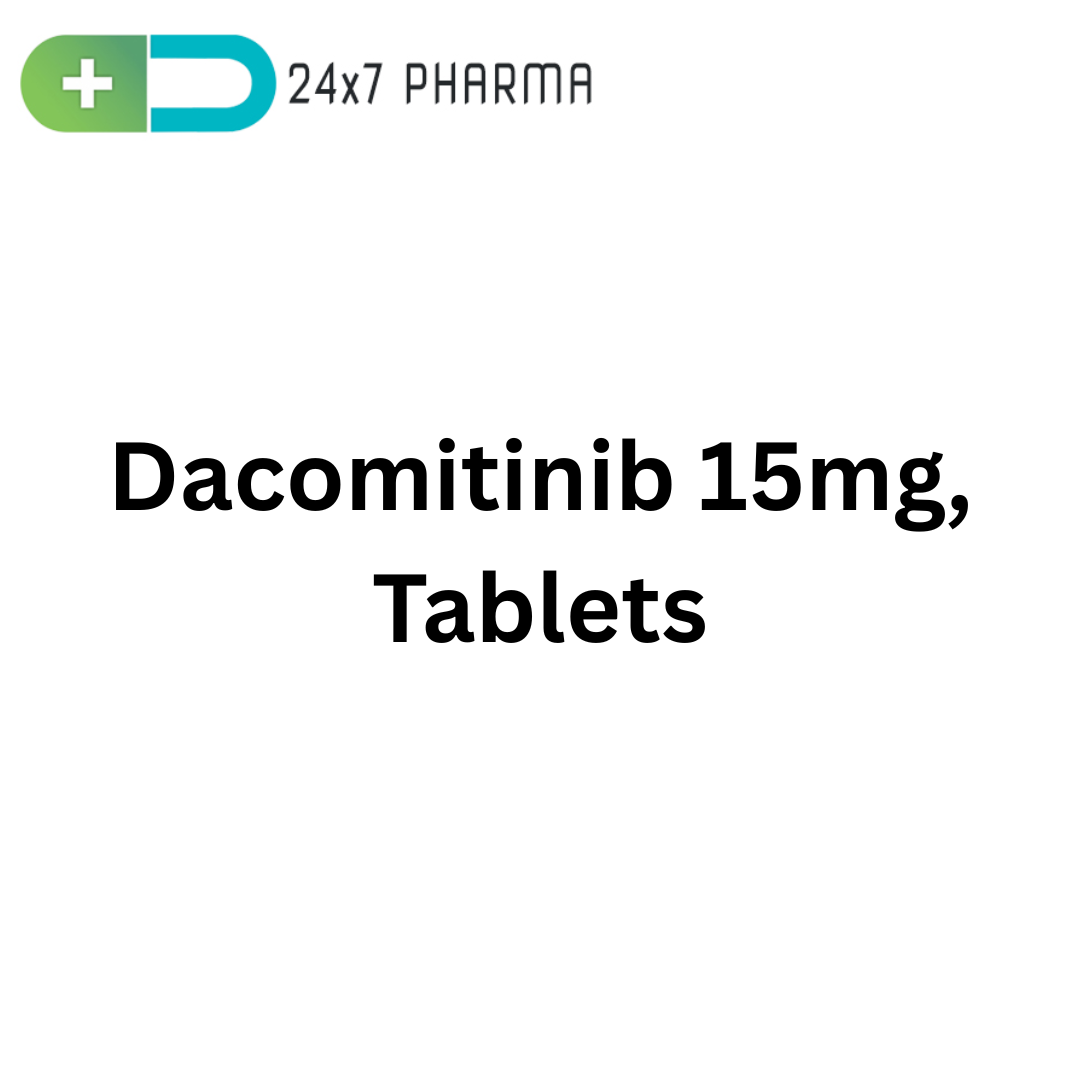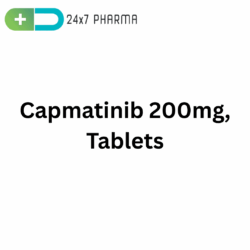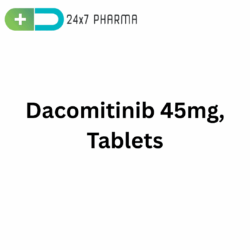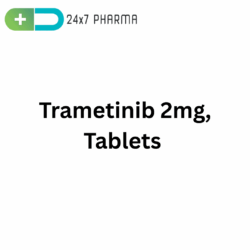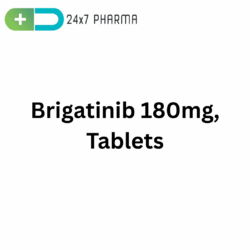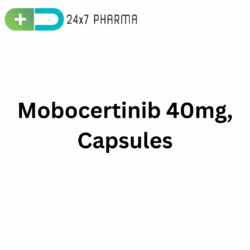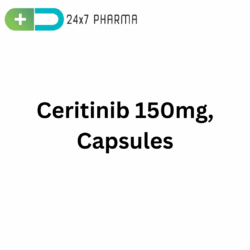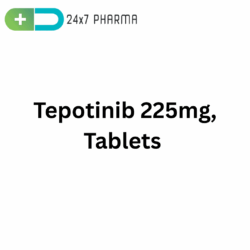LuciDac 15mg, Dacomitinib Tablets
LuciDac 15mg is the brand name for dacomitinib, a targeted drug used to treat non-small cell lung cancer (NSCLC). It is a tyrosine kinase inhibitor (TKI) that specifically targets and inhibits the epidermal growth factor receptor (EGFR) pathway, which is often dysregulated in various cancers. By blocking this pathway, dacomitinib helps to slow down or stop the growth of cancer cells.
Mechanism of Action
Dacomitinib functions by permanently attaching itself to the EGFR, HER2, and HER4 receptors’ ATP-binding site. This binding prevents the phosphorylation and activation of these receptors, thereby inhibiting downstream signaling pathways that promote cell proliferation and survival. This mechanism is particularly effective in cancers with activating mutations in the EGFR gene.
Indications
LuciDac 15mg is primarily indicated for the first-line treatment of patients with metastatic NSCLC whose tumors have EGFR exon 19 deletions or exon 21 (L858R) substitution mutations, as detected by an FDA-approved test. It is also considered for patients who have progressed on or after platinum-based chemotherapy.
Dosage and Administration
Recommended Dosage: The recommended dose of LuciDac is 45 mg orally once daily.
Administration: It should be taken at roughly the same time every day, with or without food.
Missed Dose: Unless the following dose is practically due, if a dose is missed, it should be taken as soon as remembered. If so, do not take two doses at once; instead, omit the missing one.
Other Dosage Forms
LuciDac is available in 15 mg tablets. The dosage may be adjuste based on individual patient tolerance and response. Dose modifications, including interruptions or reductions, may be necessary in the event of adverse reactions.
Side Effects
Common side effects of LuciDac include:
- Diarrhea: May be severe and lead to dehydration.
- Rash: Acneiform rash is common and may require management.
- Mucosal Inflammation: Includes stomatitis and mouth sores.
- Decreased Appetite and Weight Loss: May affect nutritional status.
Serious side effects may include:
- Interstitial Lung Disease (ILD): Symptoms include cough, dyspnea, and fever.
- Hepatotoxicity: Elevated liver enzymes may indicate liver injury.
- Cardiac Events: QT interval prolongation has been observe.
- Patients should be monitore regularly for these adverse effects.
Storage
- Temperature: Store at room temperature, between 20°C to 25°C (68°F to 77°F).
- Protection: To keep out moisture, keep in its original container.
- Disposal: Keep out of children’s reach and properly dispose of any leftover medication.
Benefits
- Efficacy: In clinical trials, a notable progression-free survival was shown.
- Convenience: Intravenous infusions are not necessary when oral delivery is use.
- Targeted Action: Selective inhibition of EGFR mutations reduces impact on normal cells.
Prescription
LuciDac 15mg is a prescription medication and should only be used under the supervision of a qualified healthcare provider. Prior to starting treatment, the existence of EGFR mutations must be confirme.
Drug Interactions
LuciDac may interact with other medications, including:
- CYP3A4 Inhibitors: May increase dacomitinib levels.
- CYP3A4 Inducers: May decrease dacomitinib effectiveness.
- Antacids and Proton Pump Inhibitors: May alter absorption; consult healthcare provider before use.
Always inform your healthcare provider of all medications you are taking to avoid potential interactions.
FAQs
Is routine monitoring necessary during treatment?
Yes, regular monitoring for side effects such as liver function and lung health is recommend.
Can LuciDac be use with other cancer treatments?
It may be combine, but only under a doctor’s supervision to avoid interactions.
Conclusion
Dacomitinib, also known as LuciDac 15mg, is a major breakthrough in the treatment of EGFR-mutated non-small cell lung cancer. For patients with particular genetic profiles, its focused method of action presents a possible alternative. Like any drugs, though, it needs to be closely watched for any possible interactions or negative effects. To guarantee the best results, patients should collaborate closely with their medical team.

